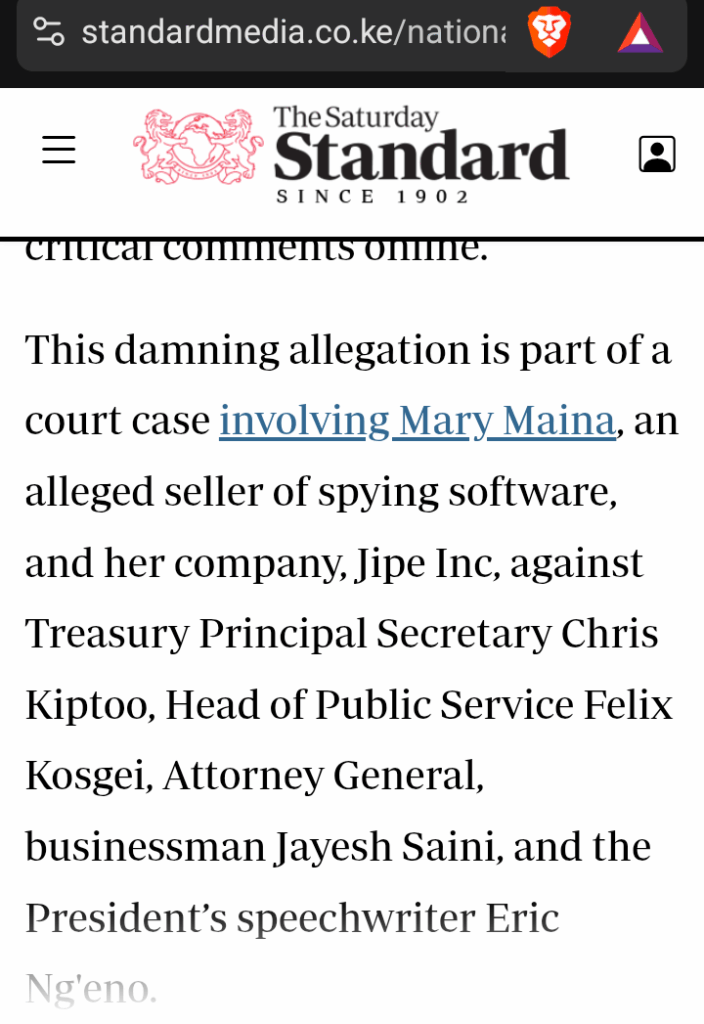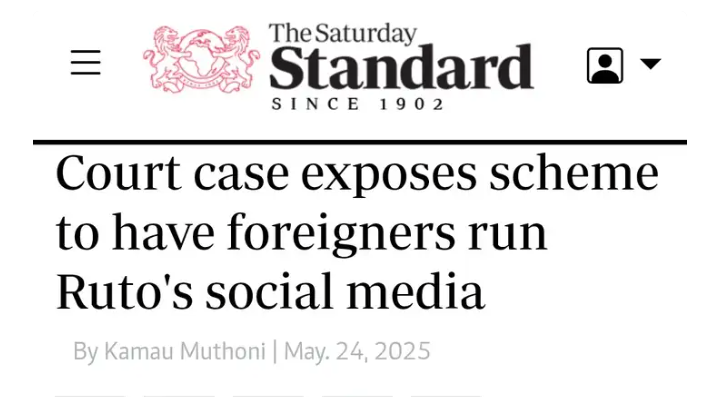As per the reports by The Standard, a court case has brought to light a hidden digital propaganda project that is allegedly supported by key figures in President William Ruto’s inner circle. The revelations point to a secretive scheme involving foreign nationals, hidden budgets, and serious divisions inside State House.
The heart of the matter lies with a Canadian-Kenyan tech entrepreneur, Wachuka, who claims she was hired to build a digital communications system aimed at improving the president’s image online and fighting back against criticism from the opposition.
In her legal complaint, Wachuka accuses high-ranking government officials of breaking a multimillion-shilling agreement. The accused include Treasury Principal Secretary Chris Kiptoo, Head of Public Service Felix Koskei, businessman Jayesh Saini, and the president’s speechwriter Eric Ng’eno.

She is demanding Ksh119 million for breach of contract and another Ksh170 million as damages. According to her, Eric Ng’eno had several meetings with her where he admitted that the president was not happy with the increasing criticism online.
He allegedly pushed for a custom-built digital system to control the narrative. Court documents show internal communications where Eric Ng’eno accuses digital strategist Dennis Itumbi of taking over state messaging and pushing his own agenda.
But soon after the Daily Nation published a headline on May 22 titled “How Spying Deal Split Ruto Men,” Itumbi came out to deny any internal conflict. He posted online that he has worked with Ng’eno for over a decade and there was no feud between them. He dismissed the reports as distractions meant for entertainment and insisted that their focus remains on delivering government promises.
Despite these denials, court filings indicate that Wachuka’s project had the approval of the presidency and was supposed to be paid for using a confidential budget line from the Treasury. As the project moved forward, Jayesh Saini allegedly tried to take control of it, which pushed Wachuka to back out.

This has now brought more questions about Saini’s involvement in state matters. Known for his strong presence in the health sector and his connections to government, his name being linked to a political digital project has raised eyebrows.
What is more concerning are claims that the president supported online attacks against opposition leaders through this system. These actions, if true, show a growing problem where state resources may be used for political manipulation rather than service delivery.
The court case has already exposed cracks within the president’s team, and as more details emerge, the ethical concerns surrounding the project continue to grow.


